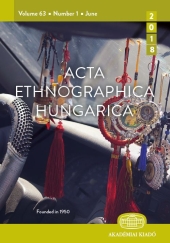Paradigm Shifts in the History of Folkloristic Fieldwork at the Turn of the 19th and 20th Centuries and in the First Half of the 20th Century
Paradigm Shifts in the History of Folkloristic Fieldwork at the Turn of the 19th and 20th Centuries and in the First Half of the 20th Century
Author(s): Éva MikosSubject(s): Cultural Anthropology / Ethnology
Published by: Akadémiai Kiadó
Keywords: folk music recordings; instrumental folk music; folklore collection; phonograph; Béla Bartók; Zoltán Kodály; László Lajtha; Gyula Ortutay
Summary/Abstract: The author of the article wishes to compare Hungarian textual and musical folkloristics at the turn of the 20th century with regard to changes in fieldwork methodologies. Hungarian folklore studies in the 19th century preferred text-oriented recording of performances, while by the first half of the 20th century the need for a performance-centered study of folklore with the help of audio recording emerged. Owing to a fundamental change in the method of folklorecollection, Hungarian folklorists studying folk music and folk dance by the middle of the 20th century applied the method of participant observation. In the meantime extensive collection gave way to intensive collection focusing on the repertoire of a given local community or of an outstanding performer. In this process Béla Vikár had a distinguished role as he was the first one to use phonograph in collecting folk poetry and folk music in Hungary, besides which, with the help of stenography, he has a remarkable manuscript legacy of folktales and folk customs as well. The approach and objectives of Béla Bartók and Zoltán Kodály differed from those of Vikár's, since for them quantitative considerations were still important, while Vikár's approach borrowed elements from social sciences as well. The break-through in this respect was marked with the oeuvre of László Lajtha, a disciple of Bartók, who dealt with vocal and instrumental folk music alike. During five decades Lajtha as a collector shifted paradigms a number of times and on the peak of his folklorist oeuvre he published monographs on the vocal and instrumental musical repertoire of bands and villages. His studies inspired György Martin, dance folklorist as well as the revival folk dance movement in the 1970s. The performer-centred study of narration that Gyula Ortutay elaborated on at the beginning of the 1940s proved to be successful primarily in the study of prose epic genres and it unreflexively followed the method of folk musicologists.
Journal: Acta Ethnographica Hungarica
- Issue Year: 63/2018
- Issue No: 2
- Page Range: 413-434
- Page Count: 22
- Language: English
- Content File-PDF

